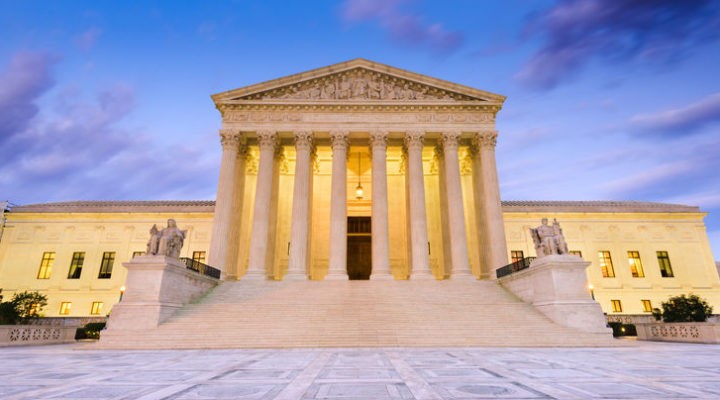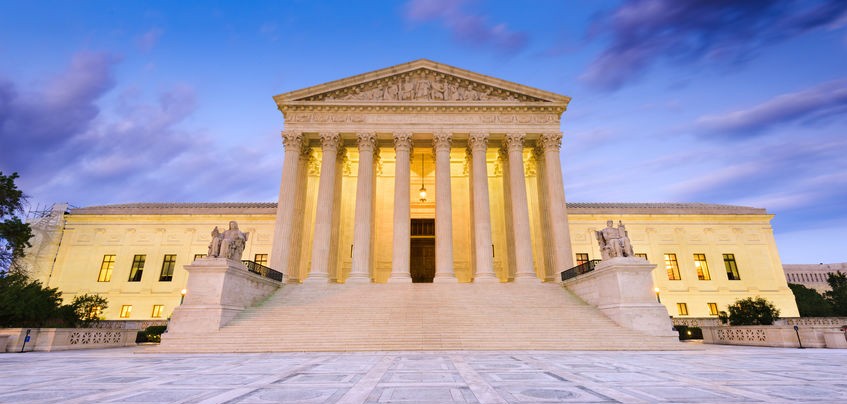Baptists care deeply about religious freedom, so we should care when this cherished freedom is misused and undermined. That’s why we should all pay close attention to the United States Supreme Court’s upcoming decision in Fulton v. City of Philadelphia, which will be handed down by next month at the latest.
The City of Philadelphia has a non-discrimination policy that mandates LGBTQ people, along with other protected groups, be treated equally by government-funded social services. In 2018, Philadelphia ended one of its contracts to provide foster care services because the provider refused to certify same-sex couples. The provider, Catholic Social Services, claims that being forced to comply with the city’s non-discrimination protections is a violation of its religious freedom.

Guthrie Graves-Fitzsimmons

David Key
This is where we need to be very careful. Defending religious freedom means we must be clear-eyed about what is and isn’t a violation of religious freedom. Taxpayer-funded agencies asking to be exempted from nondiscrimination requirements would actually undermine religious freedom.
One prominent Baptist organization, the Baptist Joint Committee for Religious Liberty, along with other religious organizations, filed a friend of the court brief in support of the City of Philadelphia. The brief notes that “in addition to its interest in ensuring equal access to service and individual dignity, the City’s nondiscrimination policy plays a critical role in advancing religious liberty. Like many nondiscrimination policies, the City’s Fair Practices Ordinance protects against discrimination on a number of grounds. Not only does it ensure that foster care agencies cannot reject same-sex couples on the basis of sexual orientation, it likewise guarantees that agencies cannot reject prospective families on the basis of religion.”
If the Supreme Court rules against the City of Philadelphia, it could give taxpayer-funded child services agencies a constitutional right to refuse to place children with qualified foster parents not only because they are same-sex couples, but also if they are people of other faiths.
This is already happening. In South Carolina, a Protestant provider funded by taxpayers refused to work with Jewish and Catholic parents seeking to serve as foster parents.
“Discrimination should have no place in keeping qualified people from serving as foster parents.”
Discrimination should have no place in keeping qualified people from serving as foster parents. This case could have a profound impact on the child welfare system nationally. There are more than 1,200 child placement agencies that contract with city, county or state governments to care for children, and 39.8% of those agencies are religiously affiliated. Faith-based organizations can be important partners in delivering social services, and many do the right thing by abiding by nondiscrimination protections.
The consequences of the case go far beyond foster care services. A Supreme Court-mandated license to discriminate also could apply to food banks, homeless shelters, disaster relief services and many other services that agencies carry out on behalf of the public.
We can’t allow religious freedom to be misused in this way. Discrimination against LGBTQ people, religious minorities, and other protected characteristics can’t go unanswered — especially when it’s mostly Christians who are asking for this “right” to harm others. Baptists long have championed true religious liberty, which is why we’re glad to see groups like BJC speaking out.

Sharonell Fulton, plaintiff in the case Fulton v. City of Philadelphia, with foster children.
“Far from burdening the free exercise of religion, a government’s ability to ensure that those who carry out government functions do so in accordance with that government’s nondiscrimination policy advances the cause of religious liberty,” the BJC brief stated.
All Baptists should join this cause and make it clear that we will defend true religious liberty from all threats — even those masquerading as a defense of religious liberty.
Finally, as we prepare ourselves for a bad outcome given the current makeup of the Supreme Court, we need to keep one aspect of this debate clear: The Supreme Court may allow social service providers to discriminate if they say it’s part of their religious convictions, but faith-based service providers still will be free to choose not to discriminate.
Miracle Hill Ministries, the South Carolina agency that previously discriminated against non-Protestant prospective parents, changed its policy in 2019 to work with Catholic and Orthodox parents. And earlier this year, the nation’s largest evangelical foster care and adoption agency, Bethany Christian Services, decided it will work with same-sex parents. We hope more and more faith-based agencies will choose to embrace the God-given dignity of all people, no matter if the Supreme Court allows them to discriminate.
Guthrie Graves-Fitzsimmons is a fellow with the Faith and Progressive Policy Initiative at the Center for American Progress. David Key is founding pastor of the Lake Oconee Community Church in Greensboro, Ga. He is the former director of Baptist Studies at Emory University’s Candler School of Theology.
Related articles:
Barrett joins in debate as Supreme Court weighs Philadelphia religious liberty case
Pivotal religious freedom case scheduled for day after election
Supreme Court legalizes gay marriage in all 50 states
You might have missed this, but the Supreme Court just opened a new term


